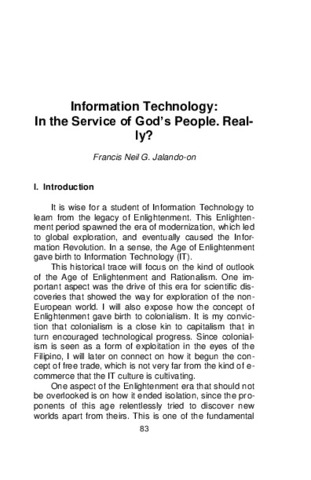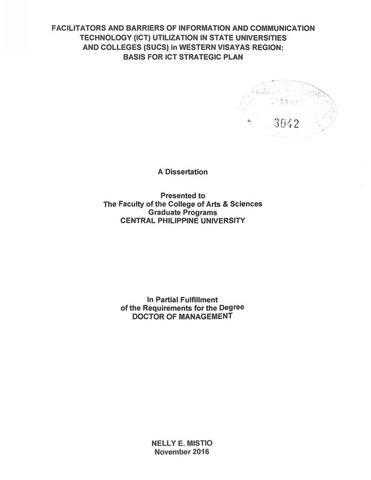Students’ information literacy skills in using e-information resources

Page views
1,634Дата
2021Thesis Adviser
Defense Panel Chair
Share
Metadata
Показать полную информацию
Аннотации
The study aimed at how well respondents could use electronic information resources based on their level of information literacy. When employing electronic resources, the outcomes of this study provided a better foundation for building and expanding students' information literacy skills. A descriptive survey method was utilized in this investigation employing a one-shot survey design.
The findings of this survey revealed that more than half of the respondents have a strong literacy competence in using online resources to find relevant information for all of the tool literacy categories. Similarly, people with limited reading abilities have difficulty finding information from different sources.
Furthermore, fifty percent of the respondents indicated that strong literacy competence on judging critically if the content on a website is legitimate and true as manifested in all questions under the critical literary section while modest literacy skills are required to evaluate critically if the information collected is credible and relevant. Students' ability to discern whether material on a website is real and truthful also influences their usage of e-resources as reflected in the findings.
Meanwhile, the findings show that the capacity to understand when it is appropriate to use the most recent product development in new information technologies is determined by the ability to know when to use the e-information resources. The majority of the respondents had a good literacy skill. Nearly half of the respondents had moderate literacy abilities when it comes to deciding when to accept the constantly developing breakthroughs in information technology. As a result, in order to profit from the growing technology used by libraries, students (users) must be competent. The importance of technological literacy using electronic information resources cannot be possible since technology continues to quickly change people's communication, access, and retrieval of information.
Описание
Abstract only
Suggested Citation
Japitana, A. J. D. , Macuro, M. Q. A. , Gonzaga, L. P. & Castete, M. C. (2021). Students’ information literacy skills in using e-information resources (Unpublished thesis). Central Philippine University, Jaro, Iloilo City.
Type
ThesisТематика
Department
College of Computer StudiesDegree
Bachelor of Library and Information ScienceShelf Location
Filipiniana Theses 020.72 J271
Physical Description
xii, 38 leaves
Collections
Связанные элементы
Просмотр элементов, связанных по названию, автору, создателю или теме.
-
Access to information resources, information seeking behavior and satisfaction with library services among the college students of Carlos Hilado Memorial State College
Tuble, Ruvy M. (2011)This study was conducted to determine the students’ access to information resources, information seeking behavior, and level of satisfaction with library services, the impact of their personal characteristics as well as ... -
Information technology: In the service of God’s people. Really?
Jalando-on, Francis Neil G. (Institute of Advanced Theological Studies (IATS) and College of Theology, 2005)It is wise for a student of Information Technology to learn from the legacy of Enlightenment. This Enlightenment period spawned the era of modernization, which led to global exploration, and eventually caused the Information ... -
Facilitators and barriers of information and communication technology (ICT) utilization in State universities and colleges (SUCs) in Western Visayas region: Basis for ICT strategic plan
Mistio, Nelly E. (2016)This is a descriptive-relational study which utilized one-shot survey design using a researcher-made questionnaire. This study covered administrators, faculty and staff members of the main campuses of eight (8) State ...




